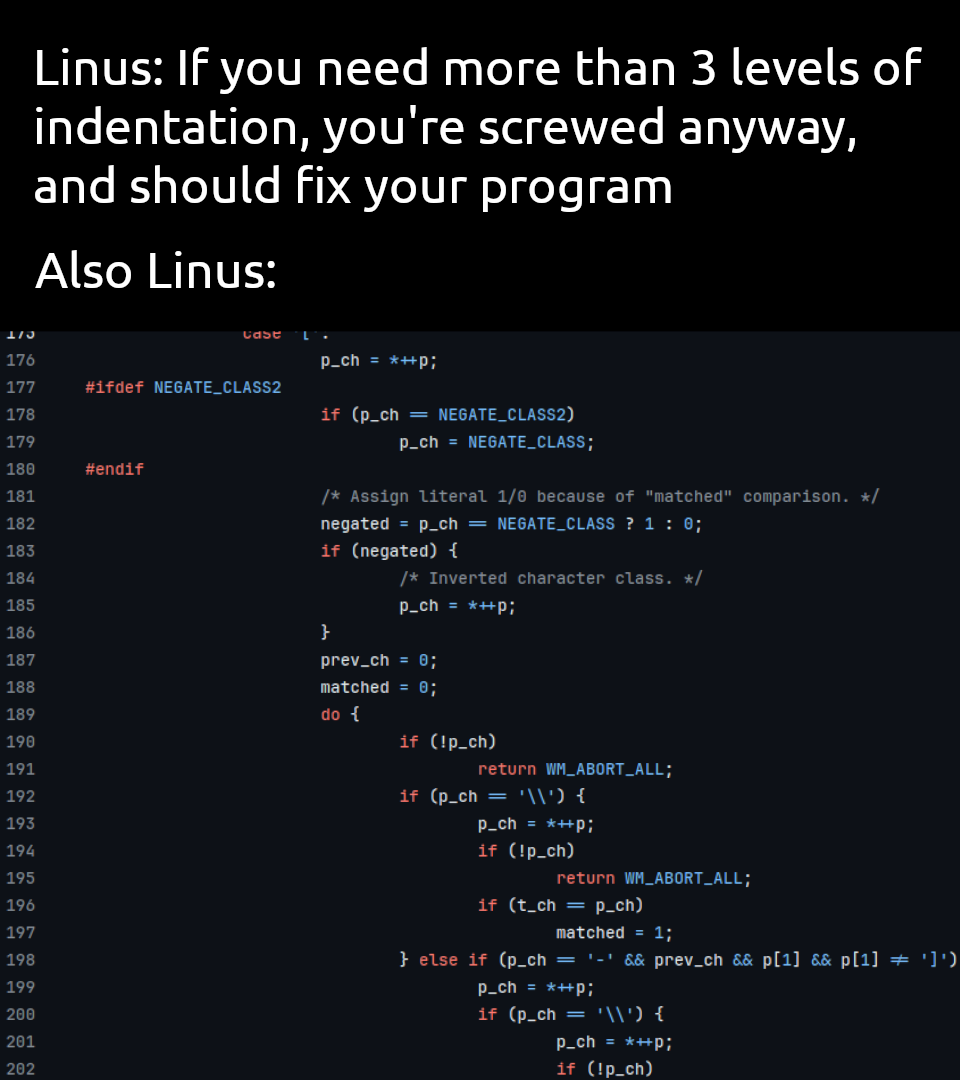this post was submitted on 09 May 2024
459 points (92.4% liked)
Programmer Humor
32443 readers
807 users here now
Post funny things about programming here! (Or just rant about your favourite programming language.)
Rules:
- Posts must be relevant to programming, programmers, or computer science.
- No NSFW content.
- Jokes must be in good taste. No hate speech, bigotry, etc.
founded 5 years ago
MODERATORS
you are viewing a single comment's thread
view the rest of the comments
view the rest of the comments

In C an assignment is an expression where the value is the new value of what was being assigned to.
In
a = b = 1, both a and b will be 1.is the same as
, so ++p.
What I meant was:
In the screenshot it said
x = *(++p)and iirc that is not the same as sayingx = *(p++)orx = *(p += 1)As in my example using ++p will return the new value after increment and p++ or p+=1 will return the value before the increment happens, and then increment the variable.
Or at least that is how I remember it working based on other languages.
I'm not sure what the * does, but I'm assuming it might be a pointer reference? I've never really learned how to code in c or c++ specifically. Though in other languages ( like PHP which is based on C ) there is a distinct difference between
++pand (p++orp+= 1)The last two behave the same. Though it has been years since I did a lot of coding. Which is why I asked.
I'll install the latest PHP runtime tonight and give it a try xD